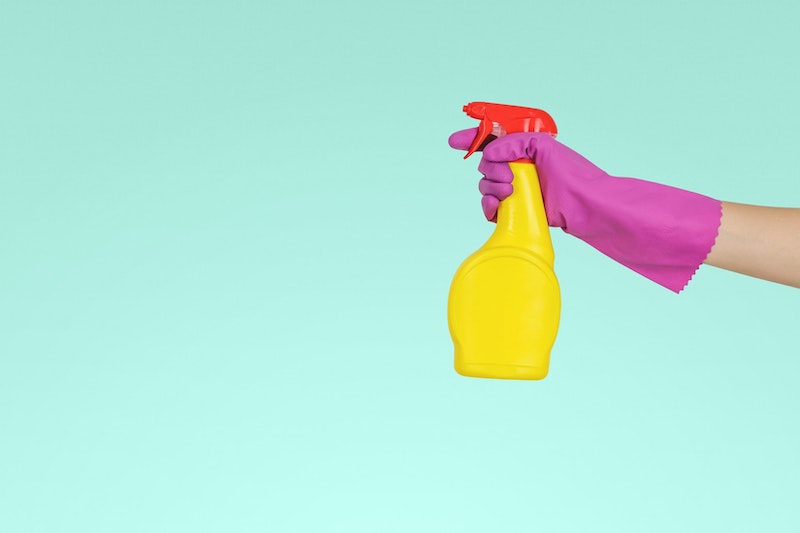The importance of the cleaning and hygiene industry throughout COVID-19

Out of all industries, cleaning and hygiene has been on the frontline when it comes to dealing with the COVID-19.
However, the industry, like many, have been through a difficult few months. They went from being inundated with orders for hand sanitiser in March, to many of the businesses they support shutting down a few weeks later. The speed with which this health, and now economic, emergency has struck the industry has been alarming to say the least.
However, as many businesses tentatively begin opening, and look to the future of post-lockdown, cleaning and hygiene will be one of the industries that will excel. Cleaning will be much higher up the corporate agenda as a non-discretionary spend to keep employees safe. Cleaning as a topic will be on the agenda of boards and senior management teams in a way it wasn’t before.
Some companies will, of course, continue to see it as a “commodity purchase”, but many businesses will fast realise that they need to invest in cleaning for the long-term. The cost of the virus is just too great to continue with the status quo of a pre-COVID-19 era.
Businesses such as Facilicom are taking the initiative during this period, launching care packs to help its customers ensure their post-lockdown return to work is safe and hygienic.
Jan Hein Hemke, managing director of Facilicom, said:
“The COVID-19 pandemic has highlighted the importance of continuously maintaining high levels of cleanliness, at home, in the workplace and in public spaces.
As many businesses hope to return to work in the near future, they need to ensure that their social distancing, cleaning practices and hygiene etiquette are strengthened to prevent further spread of infection.
Alongside a robust cleaning provision – delivered by a team of specialists – businesses should also be looking to their employees to play their part in reducing the risk of further outbreaks, by keeping their workstations as sterile as possible
For this industry, ecommerce has long been a staple channel for their businesses. The high amount of stock they require, plus the size and the weight of their products, means they are largely stored in large warehouses and purchased online. With many suppliers, such as our customer, Cherwell, running large fleets which deliver to a multitude of businesses in a wide variety of industries, all throughout the country.
So what can the cleaning and hygiene industry do to ensure that they are making the most of their ecommerce offering during this increased importance on their goods and services? Whilst also ensuring they can supply an increased demand as many businesses, shops, restaurants and pubs look to reopen?
Implement dynamic routes
Our very first recommendation is for businesses within this industry to implement dynamic route optimisation, if they haven’t already.
While many businesses begin by working on a fixed route basis, this can produce many challenges and result in limitations for business in the long run. Particularly as they expand or bring on new customers.
Dynamic routes allow businesses to plan routes daily, weekly, monthly, or however frequently they require a dynamic schedule. Systems such as MaxOptra utilise algorithms which produce efficient and reliable routes, fast. Taking into account traffic conditions and known roadworks, as well as vehicle capacities, live order volumes and delivery time windows.
All of this supports businesses in avoiding any potential inefficiencies of fixed routes, reduces excess mileage, keeps customers happy and, as a result, cuts operational costs by up to 20%.
Track your routes and deliveries
One of the challenges of an increase in demand or taking on new customers is losing track of where deliveries are, or how delivery routes are performing.
Therefore, for any business who is running a distribution fleet, it’s important to know what’s going on once the vehicles have left the depot.
Businesses can either link route optimisation systems to a vehicle telematics device, or utilise a driver app, such as what MaxOptra offers, to monitor what is going on in real time via track & trace functionality.
This on-the-day visibility enables businesses to proactively deal with any delays or issues as soon as they occur. At the end of the day this valuable data aids driver debriefing, route refinement, and management KPI reporting.
Automated email & SMS updates for customers
Another result of order overwhelm for businesses is having to communicate with a larger, or newer group of customers, which can quickly become complicated.
Keeping customers happy is a key goal for any business, but especially those who are going through the stress of reopening. Automated email and SMS updates can help businesses to do this without an increase in workload.
These updates can include when a delivery is scheduled to arrive, when it’s on its way and even when it’s nearby. Not only does this reduce the workload for businesses who often have to deal with customer enquiries, it’s also incredibly beneficial for the end-customer.
For added peace of mind, our driver apps which incorporate ePod functionality allows drivers to log proof of delivery signatures, photos and comments.
Implement a driver app
For paper-based operations, an increase in orders or new delivery addresses can result in an increase in documentation. This can quickly get messy.
We recommend that any business facing significant change or an increase in orders implements a driver app, such as the MaxOptra iOS and Android app. This will allow businesses to run a paperless operation whilst automatically pushing jobs to their drivers.
Businesses will also be able to track delivery and driver progress, whilst dealing with any issues and amends in real time.
Overall, a driver app will streamline the entire delivery process – ensuring businesses can keep on top of their routes, drivers, deliveries and documentation.
Maxoptra System
© MaxOptra, 2023. Privacy Policy and Cookies
